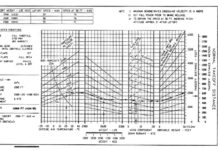Everyone knows that the air show announcer is a critical member of the safety team, right? Hopefully everyone who is reading this knows that since we stress safety as a good reason to hire a professional, and every good emergency plan identifies the role of the announcer.
An announcer must be prepared to take on that responsibility, and that means knowing in advance what to do under any conceivable circumstance. It takes preparation and practice. Just as a pilot practices maneuvers over and over, announcers should have their own “maneuvers” that they perform from knowledge and even rehearsal. Announcers must also have critical information readily available when they need it.
Preparation begins before arrival at the show location. It is just as important to get the emergency plan as it is to get performer information. Do not make the mistake of assuming the show knows what you need, particularly new shows or shows using a professional announcer for the first time. Tell the show where you want the announcer’s stand, preferably up front where you can see what’s going on in the crowd as well as the air. That makes for better entertainment, and also puts you in a position to see should problem situations arise.
When arriving at a location, become familiar with the airport layout, the location of all services, especially medical, ingress and egress routes, shelter locations in the event of bad weather and any other facts about the site. Introduce yourself to all the critical personnel, including the incident commander, usually a member of the airport staff, police or fire services. Know the public information officer. Explain to them all what you will do to help them do their jobs.
When the show starts, remember that not all safety concerns are in the air. In fact, most are on the ground behind you. Simple reminders like no smoking, please pick up trash (known to pilots as FOD), watch the kids around static displays, wear sunscreen and drink water. It also doesn’t hurt to remind parents to cover little ears when the noisy jets are flying.
Weather can always be a factor. Only the announcer can tell the crowds it’s time to seek shelter. Air shows can also attract people with causes, such as war protesters. Be sure to communicate with public safety officials to let you know what is going on.
Being part of the safety team means more than just knowing how to respond to a crash or other performer incident. Announcers can play a big role in preventing little things from going wrong or becoming big things.








